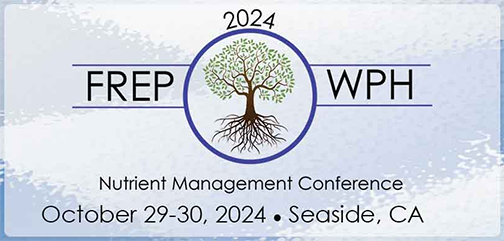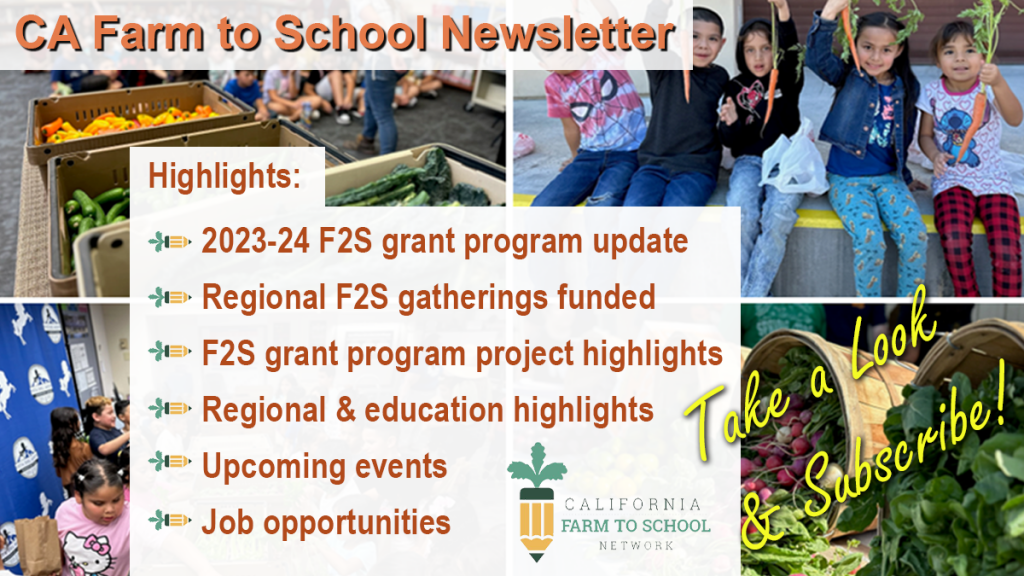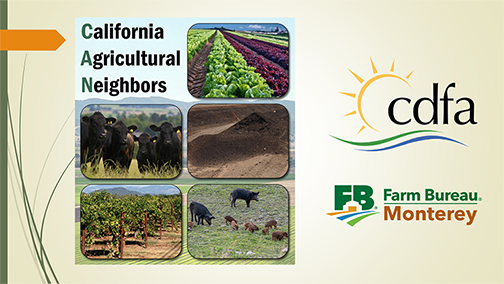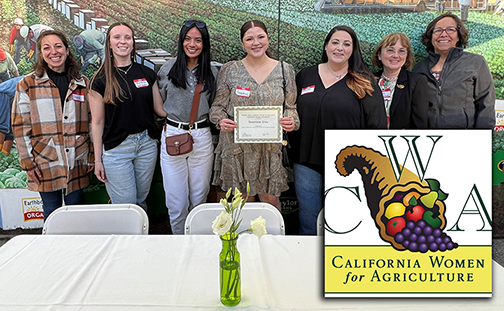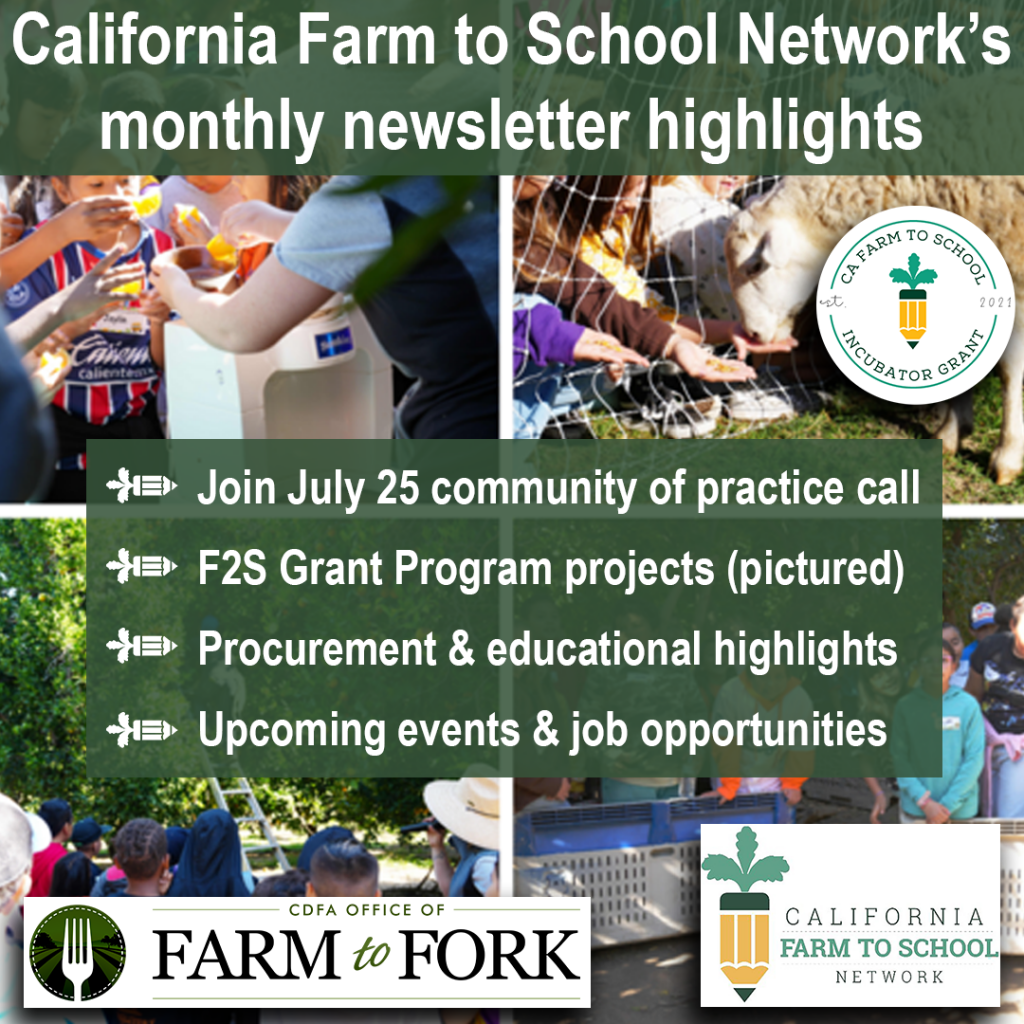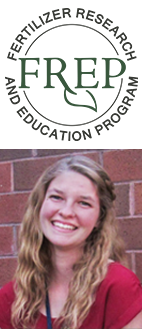The California Department of Food and Agriculture (CDFA) Fertilizer Research and Education Program (FREP) Grant Program annually funds research projects related to the environmentally safe and agronomically sound use and handling of fertilizing materials in California.
The following two research projects were recently completed and added to the FREP Research and Project Database.
Enhancing Nitrogen and Water Use Efficiency in California Carrot Production Through Management Tools and Practices
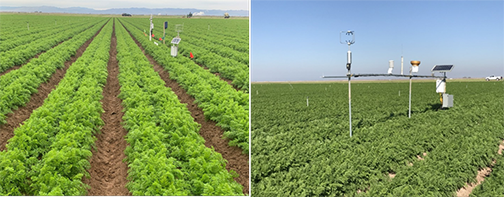
Project Location: Imperial and Kern counties
Overview: The purpose of this project was to understand the viability and applicability of current nitrogen and irrigation management practices in California carrot production. The project aimed to develop knowledge and information on improving and promoting adoption of management practices that optimize nitrogen and irrigation water use efficiency in addition to developing new information on nitrogen (N) uptake curves, net N removal, and crop water use. Data from the project was also used to add carrots to CropManage, a web-based tool for water and N management.
Highlights:
- Carrots are typically over-irrigated during plant establishment.
- N uptake curve was developed for desert carrot; 50% of N uptake occurs between 80-130 days after seeding.
- N application rates greater than 145 pounds per acre do not have a significant impact on carrot root yield in a well-managed irrigated field.
- CropManage carrot module was developed and evaluated for carrot fields in the low desert region.
- An average N removal of 3.0 pounds per ton of fresh carrot root was determined for desert carrots.
Click here to read more about this project in a FREP Research Update blog.
Immobilization of Nitrate in Winter-Fallow Vegetable Production Beds to Reduce Nitrate Leaching
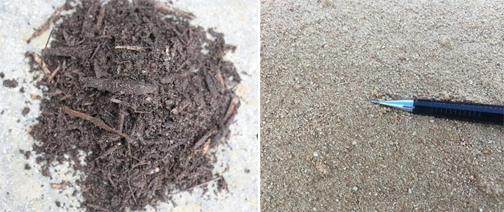
Project Location: Commercial farms on the Central Coast
Overview: This project evaluated the use of high carbon (C) amendments to reduce nitrate leaching in winter fallow vegetable crop beds. The researchers identified two primary high C materials, a local, inexpensive and abundant green waste material called Forest Mulch and almond shells from the Central Valley. Laboratory incubations and large-scale field trials in commercial vegetable fields were conducted to look at how effectively different particle sizes and application rates of these materials immobilized nitrate and prevented leaching. In-field starter fertilizer trials were also completed to examine the impact of high C amendments on the yield of the subsequent crop. Finally, an economic analysis of the costs associated with using Forest Mulch and almond shells was carried out to examine the feasibility of their use.
Key Takeaways:
- Ground almond shells are a viable high C amendment, while the Forest Mulch green waste is not effective at immobilizing soil nitrate.
- The optimal particle size for using ground almond shells as a high C amendment are ¼ to ½ inch. Applications need to be 5 to 10 tons/acre (T/A) to be effective.
- Applying starter fertilizer can adequately overcome immobilization occurring after high C material application rates with no adverse effect on yield.
- Trucking and grinding costs are likely to make the practice of applying almond shells too expensive at the rates required to effectively immobilize soil nitrate-N for most growers at this time.
Click here to learn more about this project in a FREP Research Update blog.
If interested in receiving FREP’s Bringing Research into Practice quarterly newsletter that highlights FREP-funded research projects, visit the FREP Blog and subscribe at the top right of the webpage.



